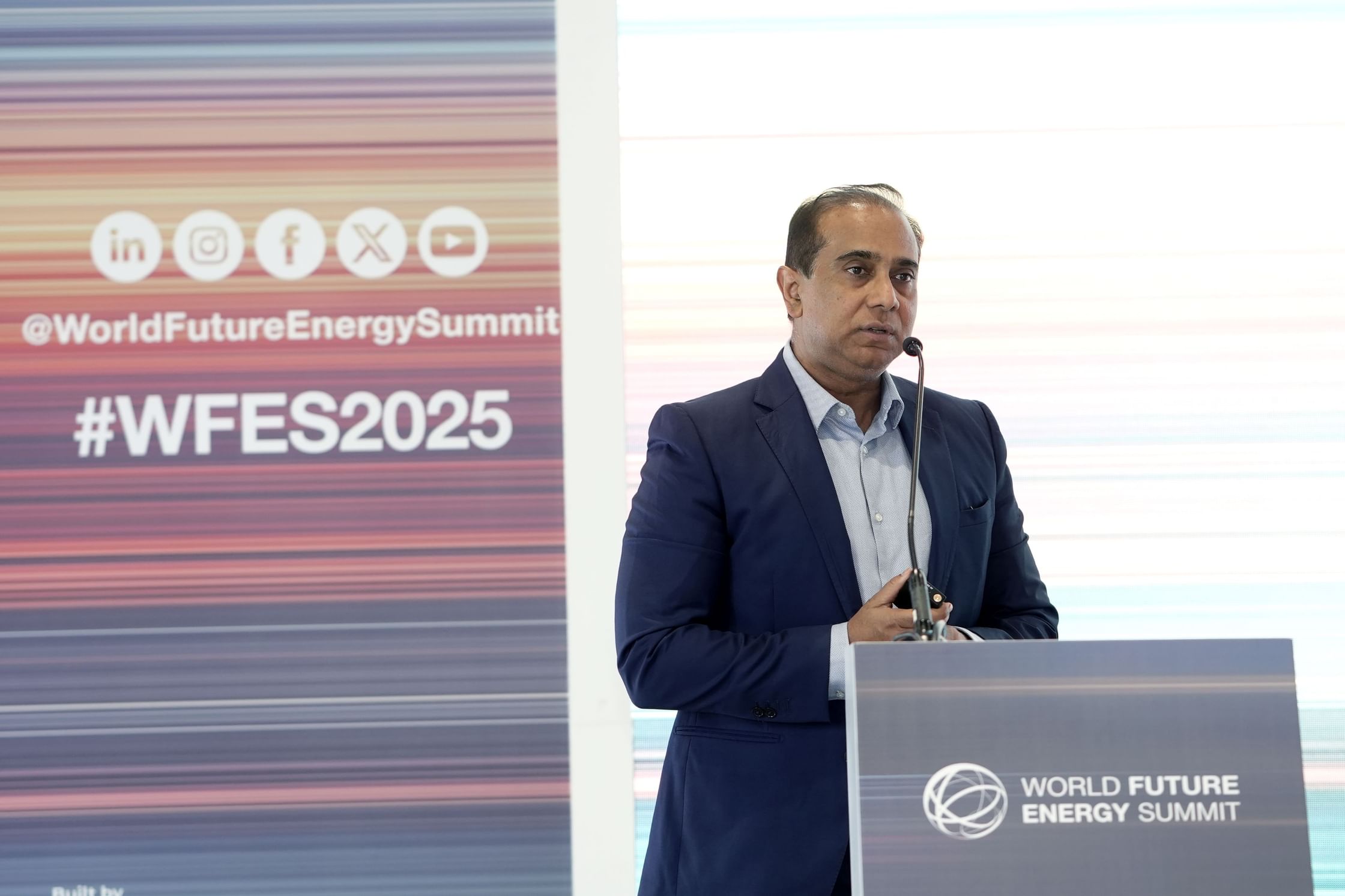Abu Dhabi, UAE – A new report highlighted the UAE’s leadership in the regional solar energy sector, driven by initiatives like the Dubai Clean Energy Strategy 2050, targeting 75 percent clean energy by 2050, and Abu Dhabi Vision 2030, aiming for 30 percent renewable energy within five years.
The “Solar Outlook Report 2025” report, launched by the Middle East Solar Industry Association (MESIA) during the World Future Energy Summit 2025 in Abu Dhabi, outlines the rapid growth of solar energy in the Middle East and North Africa (MENA) region and the UAE’s key role in this transformation.
Solar energy’s share in the regional energy mix grew significantly, with solar capacity in MENA rising 23 percent in 2023 to 32 gigawatts (GW) peak, and projected to exceed 180 GW peak by 2030. Growth is driven by technological advancements, government support, and private sector investment.
The report highlights the adoption of innovative technologies like digital twins and automated cleaning systems, which have enhanced solar plant performance, increased energy output, and reduced costs. Advances in energy storage and automated operations are addressing challenges in expanding solar portfolios.
Green hydrogen is identified as a fast-growing sector, with MENA’s abundant solar and wind resources offering a competitive edge in production. Despite challenges such as funding and infrastructure, the region’s commitment and market advancements are unlocking new opportunities.
Efforts to localise solar manufacturing and reduce reliance on external suppliers are essential for long-term success. Countries like Morocco, Egypt, and Tunisia are expanding their solar capacities to meet local needs and contribute to global clean energy goals.
Fazle Moyeen Quazi, MESIA President, noted that next-generation technologies enhance solar project efficiency and resilience, addressing issues like intermittency and grid stability.
The report emphasises that advanced solar cells, grid integration tools, and digital monitoring systems are boosting efficiency, while private sector investments, public-private partnerships, and innovative financing are accelerating adoption.
Leen AlSebai, Head of the World Future Energy Summit and General Manager of RX Middle East, highlighted the summit’s role in fostering connections among global stakeholders, reinforcing the MENA region’s position as a leading solar energy market.








